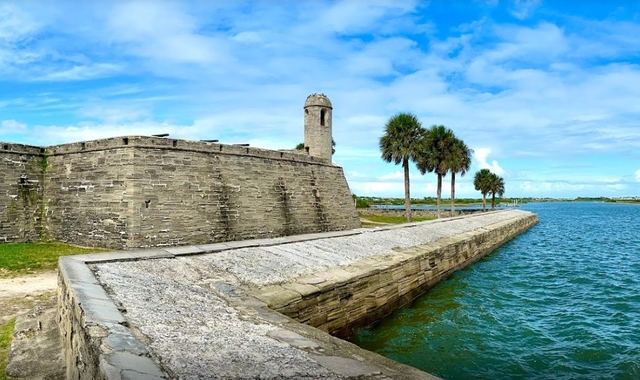The Floral Origin: How Florida Got Its Name
The state's very name dates back to the early days of European exploration. In 1513, Spanish explorer Juan Ponce de León made landfall on the peninsula. He arrived during the Easter season, a time when Spain celebrated Pascua Florida, or "Feast of Flowers." Struck by the peninsula's lush and beautiful vegetation, Ponce de León christened the entire region Florida in honor of this festive occasion. While often romanticized as "the place where the tropics meet," its direct translation from Spanish simply means "flowery."
Beyond the Flowers: Stories Behind Florida's Cities
Many of Florida's towns carry names that echo its historical narratives. For years, local lore suggested that the vibrant city of Orlando derived its name from a brave soldier who gave his life protecting fellow soldiers during the Seminole Indian War, camped outside Fort Gatlin. While historians now point to other possible origins, the romantic tale underscores the state's military past. Other cities, however, explicitly retain their martial origins, with names like Fort Pierce, Fort Lauderdale, and Fort Myers serving as direct reminders of their roles as forts during the Seminole Indian War.
The Sunshine State: A Modern Identity
Today, Florida is globally recognized by its official moniker: The Sunshine State. This nickname perfectly encapsulates its defining characteristics: a consistently warm climate, a rich agricultural heritage, and an abundance of natural resources. It's no wonder Florida has also become a premier tourist destination, drawing visitors year-round to its endless variety of activities, entertainment, and diverse cuisine. The state's average of 230 sunny days a year is a significant magnet for tourists and business travelers from all corners of the globe, solidifying its status as a perpetual vacation hotspot. It's also home to a fascinating natural wonder: the world's largest alligator population.
A Coast of Many Names: Florida's Regional Nicknames
Beyond its official title, countless regional nicknames have emerged to define specific parts of Florida, often based on geographical features, historical events, or influential residents.
- The Gold Coast: This refers to the affluent group of coastal communities on Florida's southeast Atlantic coast, encompassing areas like West Palm Beach, Palm Beach, and Miami-Dade counties. The name hints at both the region's prosperity and its sun-drenched beaches.
- The Treasure Coast: Located on the southeastern Atlantic coast, just north of the Gold Coast, this region includes Indian River, St. Lucie, and Martin counties. Its name commemorates the numerous Spanish galleons laden with treasure that famously wrecked off its shores centuries ago.
- The Lee Island Coast: Stretching along southwestern Florida, this area is characterized by its hundreds of beautiful barrier islands, including popular destinations like Sanibel, Captiva, and Marco Island. The "island" in its name perfectly describes its unique geography.
From its "flowery" baptism by Spanish explorers to its modern-day status as the "Sunshine State," Florida's identity is a dynamic blend of history, natural splendor, and endless appeal. Its many names, both official and colloquial, paint a vivid picture of a land that continues to enchant, innovate, and thrive.
